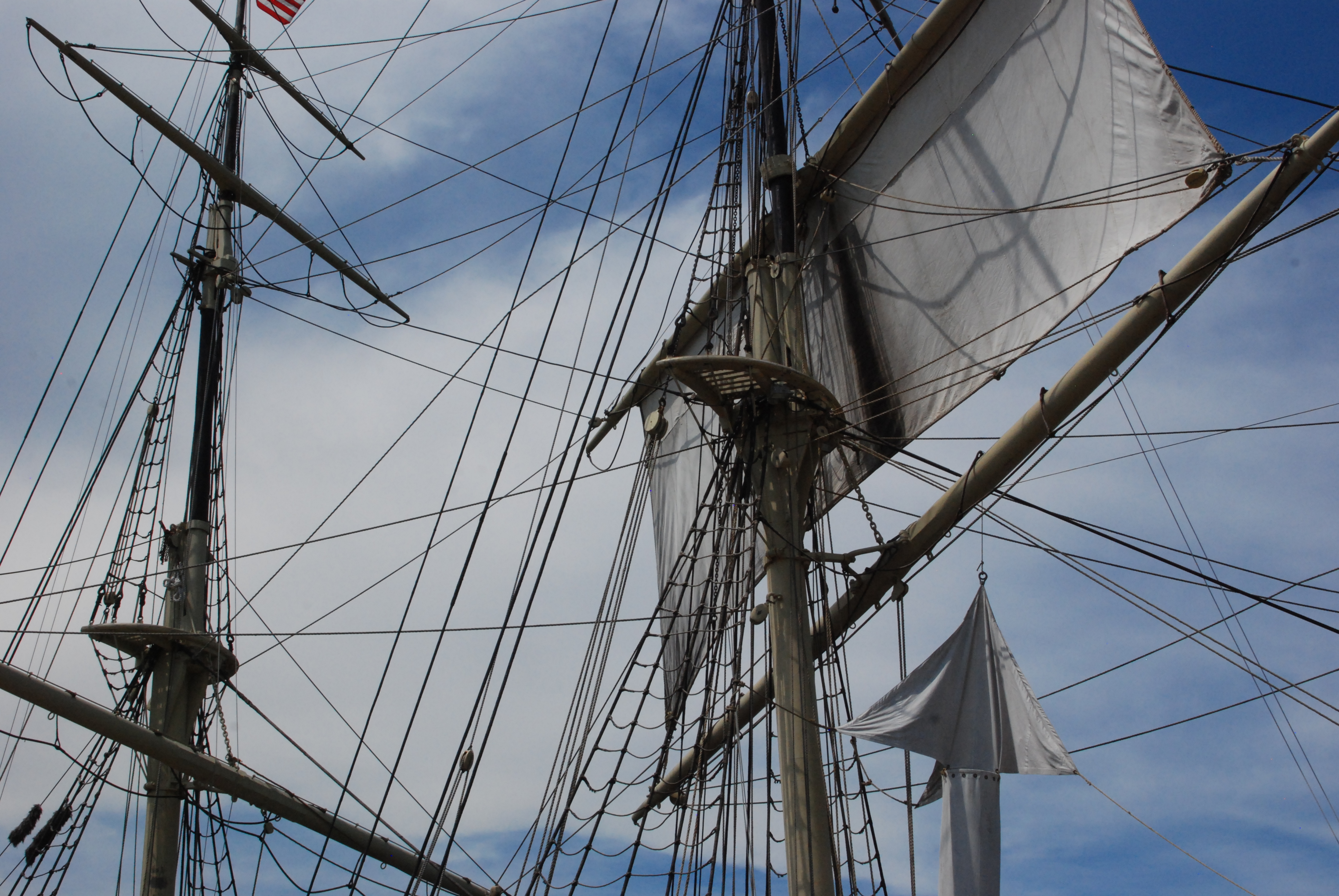
A portion of the complex mast rigging of the 19th century whaling ship The Charles W. Morgan. Note the semi-circular lookout spots where sailors searched the horizon for whales. Photo by Katrin Talbot.

Katrin Talbot at Herman Melville’s Arrowhead, Pittsfield, Mass. Photo by Kevin Lynch
Partly because my little poem in honor of Katrin Talbot’s birthday Tuesday July 21 was so well received on Facebook, I’ve decided to post it on my blog, along with a few more comments. But I’m doing this mostly because Katrin Talbot is an extraordinary cultural figure who contributes so much to our enrichment.
So I will also offer a small medley of photographs she took during our 2008 research trip out East in pursuit of Herman Melville.
Katrin is collaborating with me by providing her stunning photographs for my forthcoming novel about Herman Melville, with the working title Melville’s Trace or, The Jackal.
Katrin is extraordinarily gifted as not only a photographer, but as a poet and as a musician. She is assistant principal violist with the Madison Symphony Orchestra. It is hard to say in which of her chosen media she is best. Suffice it to say she is the most talented person I know. And as an arts journalist for well over 30 years I have gotten to know and befriended many gifted artists in all media and art forms. I first admired her viola playing when I moved to Madison to cover the arts in 1989 — she was playing with the Madison Symphony and with the Karp Family in their annual fall chamber music concerts (She is married to the brilliant cellist Parry Karp, of the Pro Arte String Quartet).
Then, as I recall, I did a feature story on a fascinating inter-disciplinary performance event she was involved in. It piqued my interest because it incorporated quotes from Melville’s Moby-Dick, and was profoundly inspired by the book and author whom I had by then become obsessed with.
So Katrin’s interest in the so-called American Renaissance of literature was a natural entrée for our budding friendship.
When I got the idea of doing a research trip out East for my novel, part of my thought was to find a talented photographer to provide images to complement the story.
I asked Katrin and her enthusiasm and talent immediately lit up my hopes for the book .
We made plans and, in the final scheme, her daughter Arianna was free and interested, so the three of us made the trip together, of which these superb photos will give you a taste.
(Katrin and I also joined a very stimulating collaborative interdisciplinary group of artists called Arts Immersion, formed by Madison artist and psychiatrist Russell Gardner. Later she and I collaborated on a paper I presented on Melville to the Madison Literary Club.)
I know, when my novel is finally published, the photos of Katrin’s in it will not do justice to the full array of wonderful images she captured on that glorious trip. So here is a sampling of her photos, along with my birthday poem for her, “And the Sun Smiled”
And the Sun Smiled
Years ago, the seed emerged as a Katrin blossom on this day, and lifted into the wind and rode the rhythms of poetry that would circle under a tree, and the vibrations that became a viola’s song.
Many years later, on a Melvillian trail, I was lucky her poetry and music filtered through a camera lense, from her poised and snaring eye, like a reflection in the eddying river that turns each glimmer into another piece of Nature’s ongoing masterpiece, sometimes as fleeting as a squirrel’s breath, other times as broad-shouldered as a cloud-burnished sunset.
She grew nearly as tall and as lovely as the tree she once composed poetry beneath. And the sun smiled, dappling through the leaves, pleased to know it warmed the place she grew.
— Kevin Lynch
In Pursuit of Herman Melville: a medley of photographs by Katrin Talbot, taken for illustrations for my forthcoming novel on Melville.
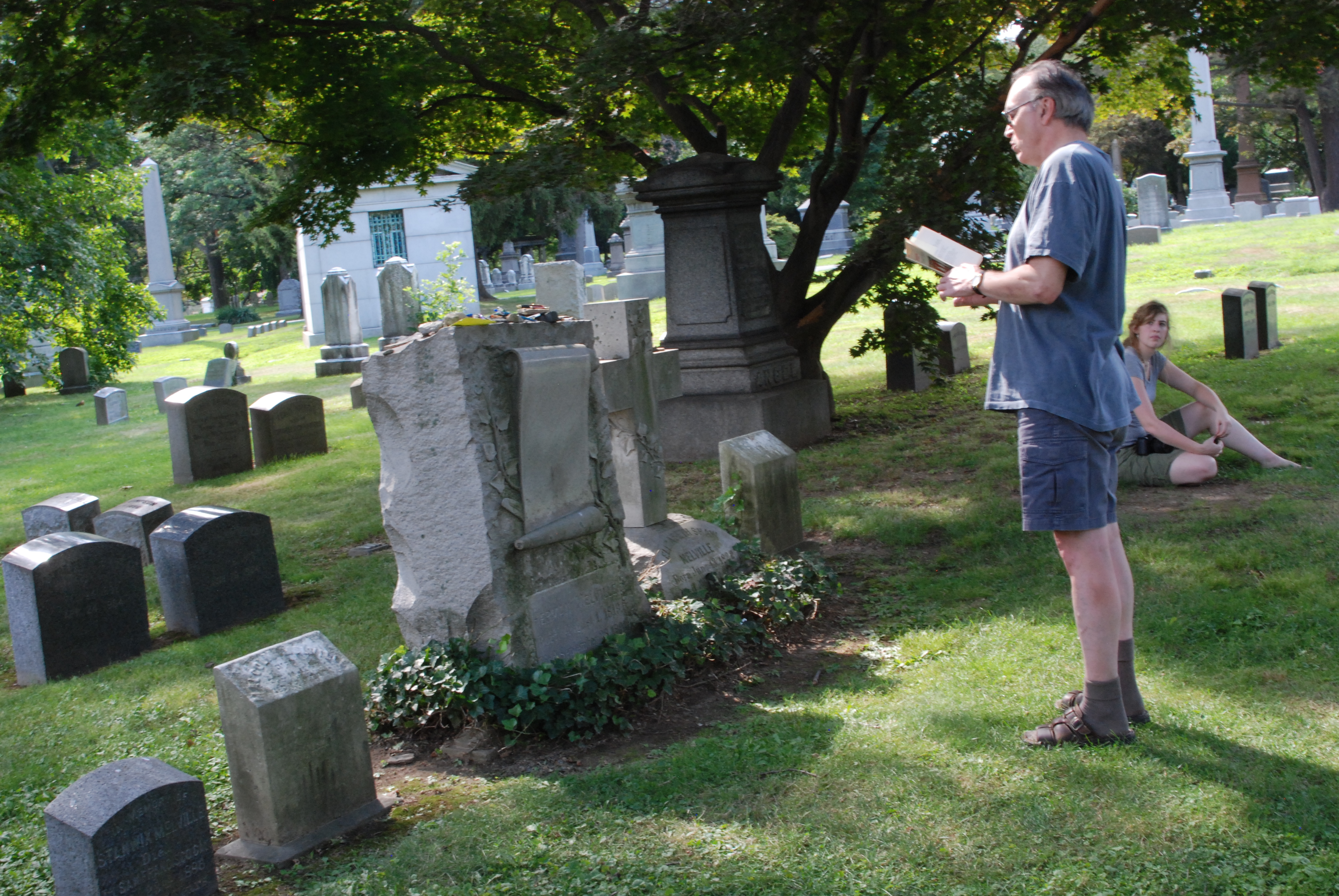
Kevin Lynch reads Hart Crane’s “At Melville’s Tomb” at Melville’s tomb, Woodlawn Cemetery, The Bronx, New York, summer 2008. Photo: Katrin Talbot
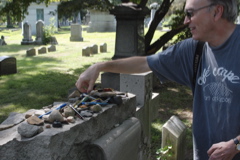
Kevin places a pen amid the many writing tools left atop the grave of Herman Melville.
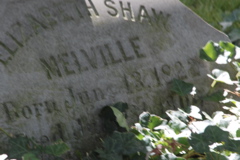
Gravestone of Melville’s wife, Elizabeth Shaw Melville
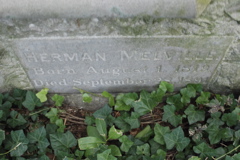
Bottom of Melville’s gravestone.
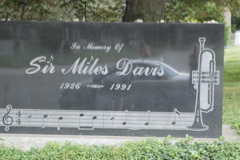
Gravestone of famed jazz trumpeter Miles Davis near Melville’s gravestone and beside that of Duke Ellington in Woodlawn Cemetery in N.Y.
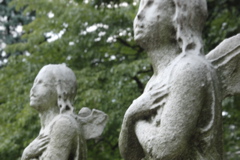
Twin angels atop gravestones at Woodlawn
A schooner mast during a tour of “Melville’s New York,” hosted by Melville “doppelganger” Jack Putnam

Rigging of the N. Y. schooner reflected in the sunglasses of photographer Katrin’s daughter Ariana.
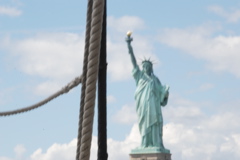
The Statue of Liberty from the schooner as we passed by the iconic monument.

A reflection of the old and new New York, juxtaposed.
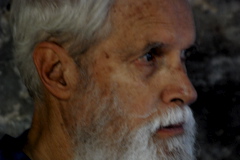
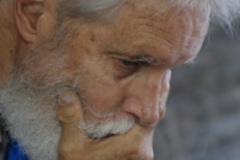
Melville “doppelganger” Jack Putnam, 72, historian at the South Seaport Maritime Museum in Manhattan. For years, Putnam has done memorized recitations of whole chapters of “Moby-Dick” as part of his tours.
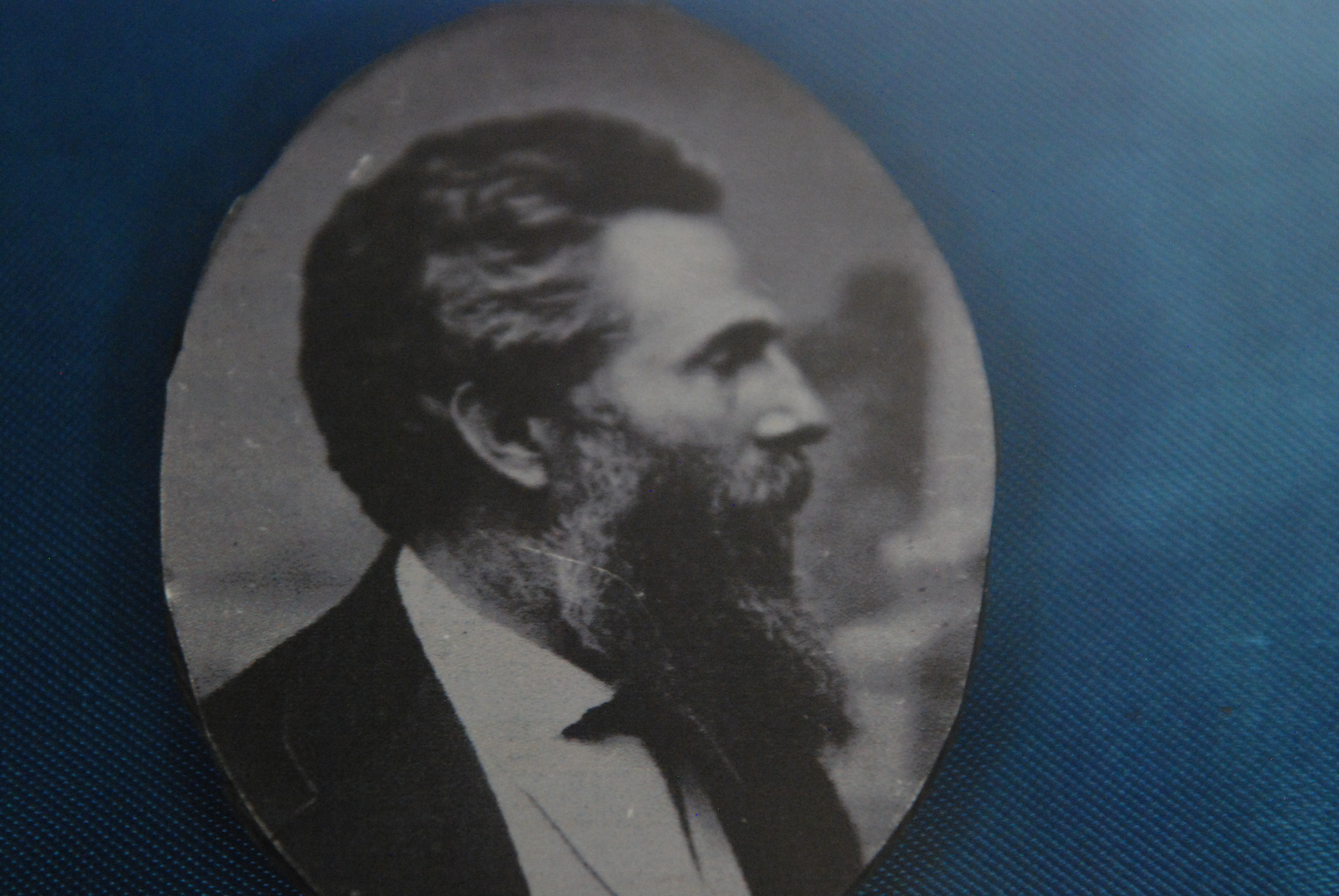
Photograph of Herman Melville in late 1860s, from Pittsfield Anthenaeum. He died in 1891 at 72, the same age as his current “doppelganger,” maritime historian Jack Putnam, when Katrin photographed him in New York.

Detail of the large chimney that dominates the Melville home at Arrowhead, and the subject of Melville’s short story “I and My Chimney.”
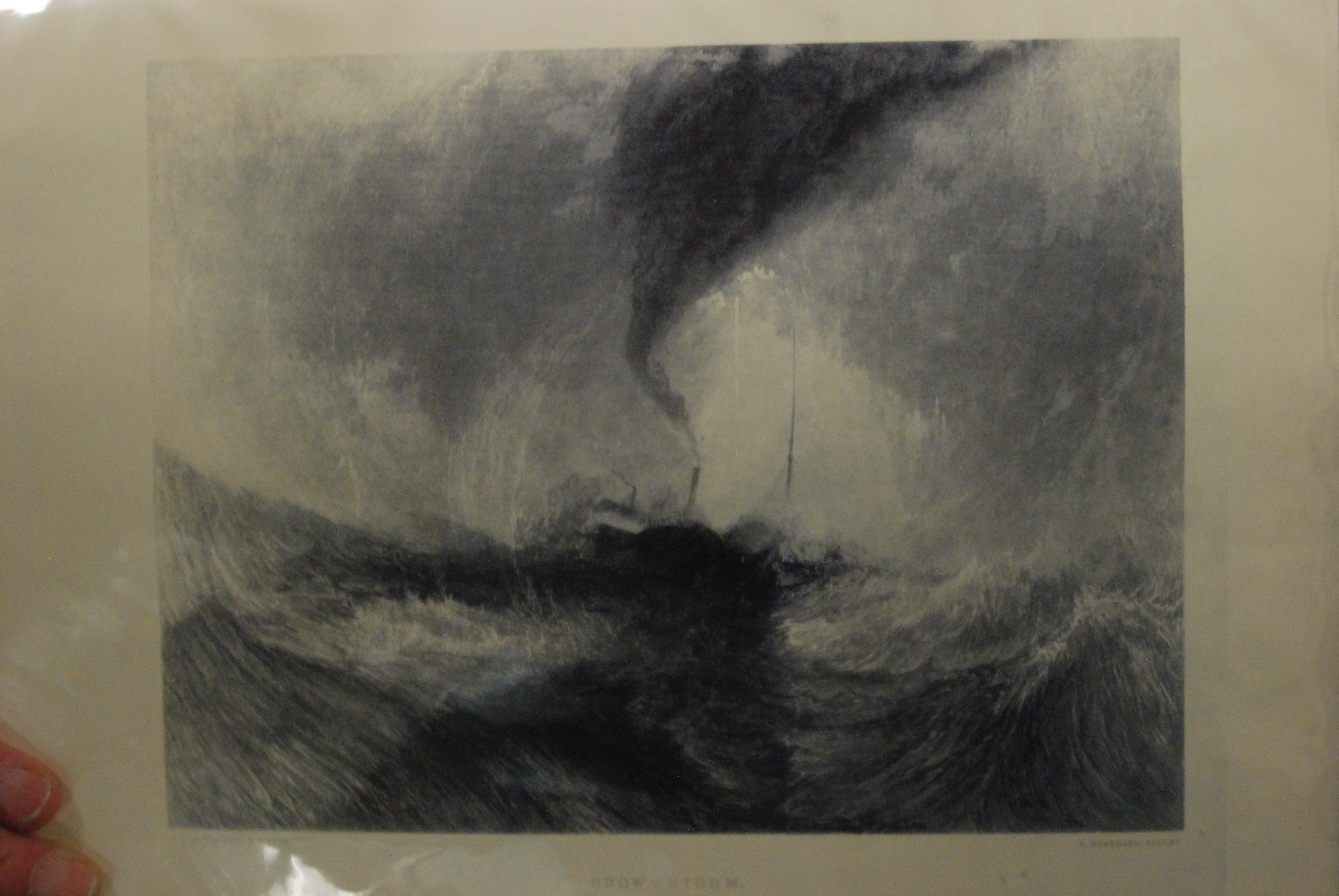
A lithograph print by J.M.W. Turner from Herman Melville’s personal collection. Melville was an avid collector of art prints.

This appears to be a travel visa that Melville obtained for his trip to Europe and the Holy Land.
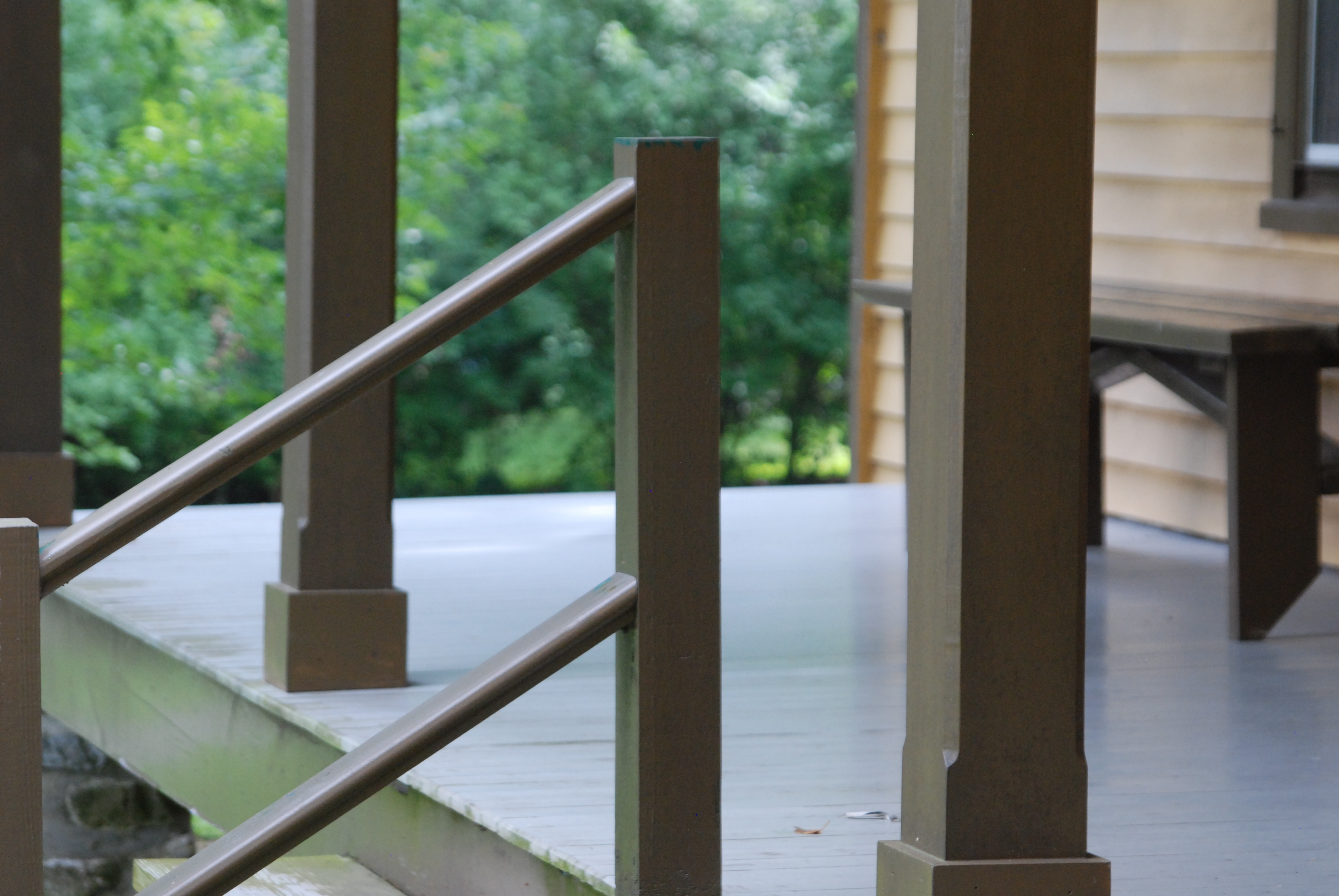
The piazza that Melville added to his house at Arrowhead. It provided the title for his acclaimed story collection “The Piazza Tales,” which includes such great works as “Bartleby the Scrivener,” “Benito Cereno,” and “The Encantadas, or Enchanted Isles.”
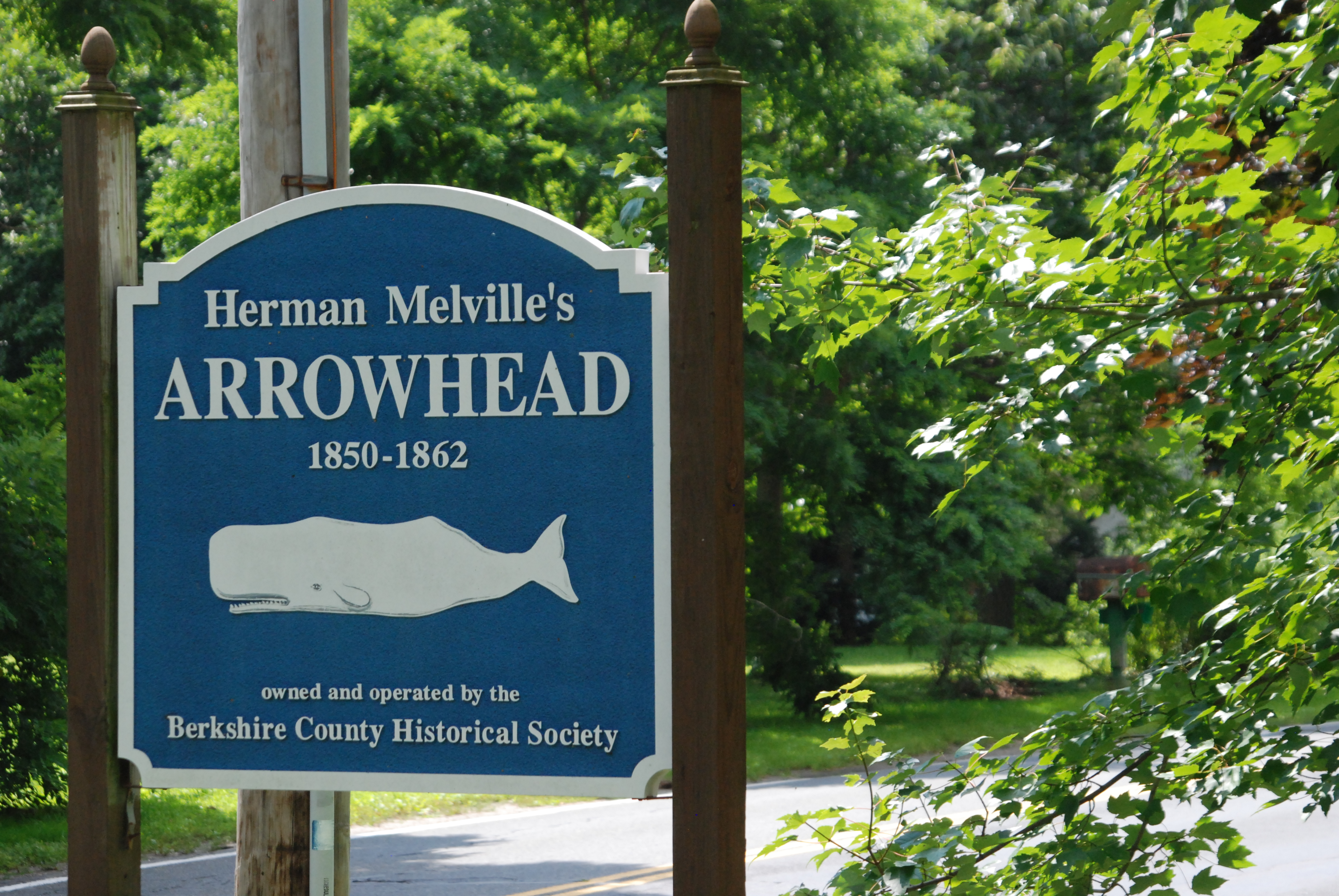
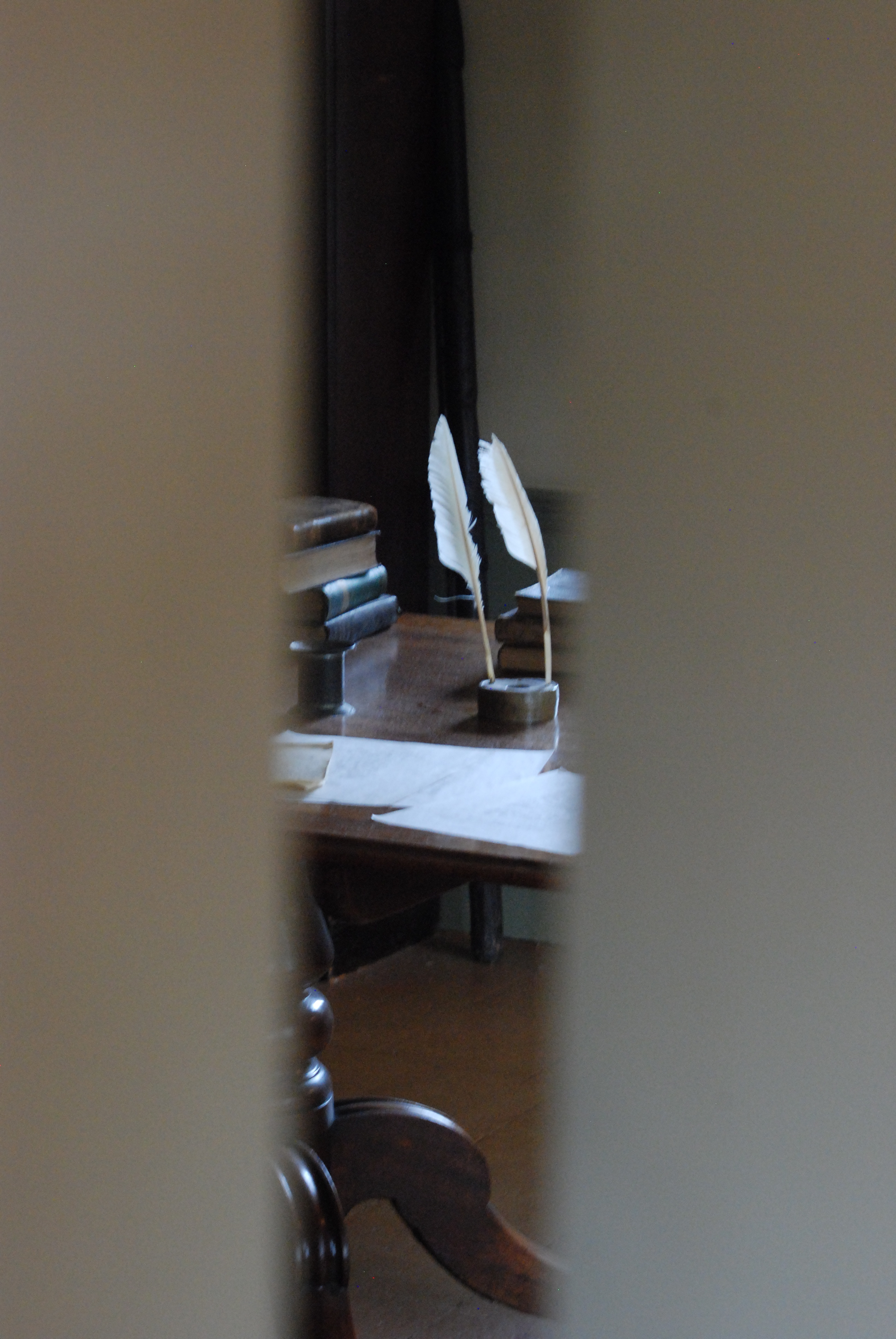
A peek into Melville’s study and writing desk at Arrowhead, where he wrote “Moby-Dick,” and other works. Imagine, a masterpiece written with nothing but quills, ink fountains and sheets of paper!
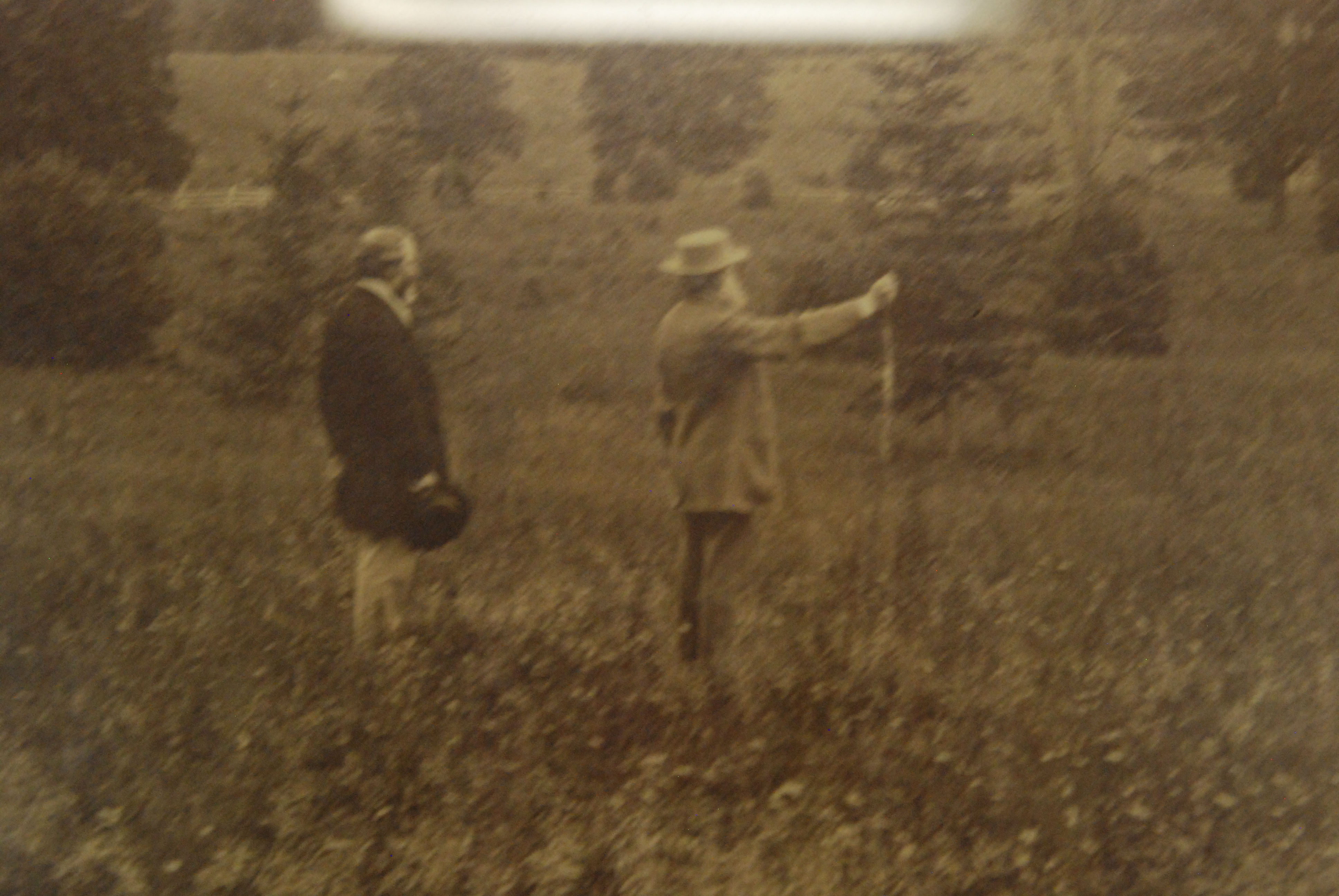
Herman Melville (left) and a visitor surveying in the fields at Arrowhead, photo from Pittsfield Anthenaeum.

Melville’s Arrowhead, with the famous piazza he added. The home is well preserved by The Berkshire County Historical Society.
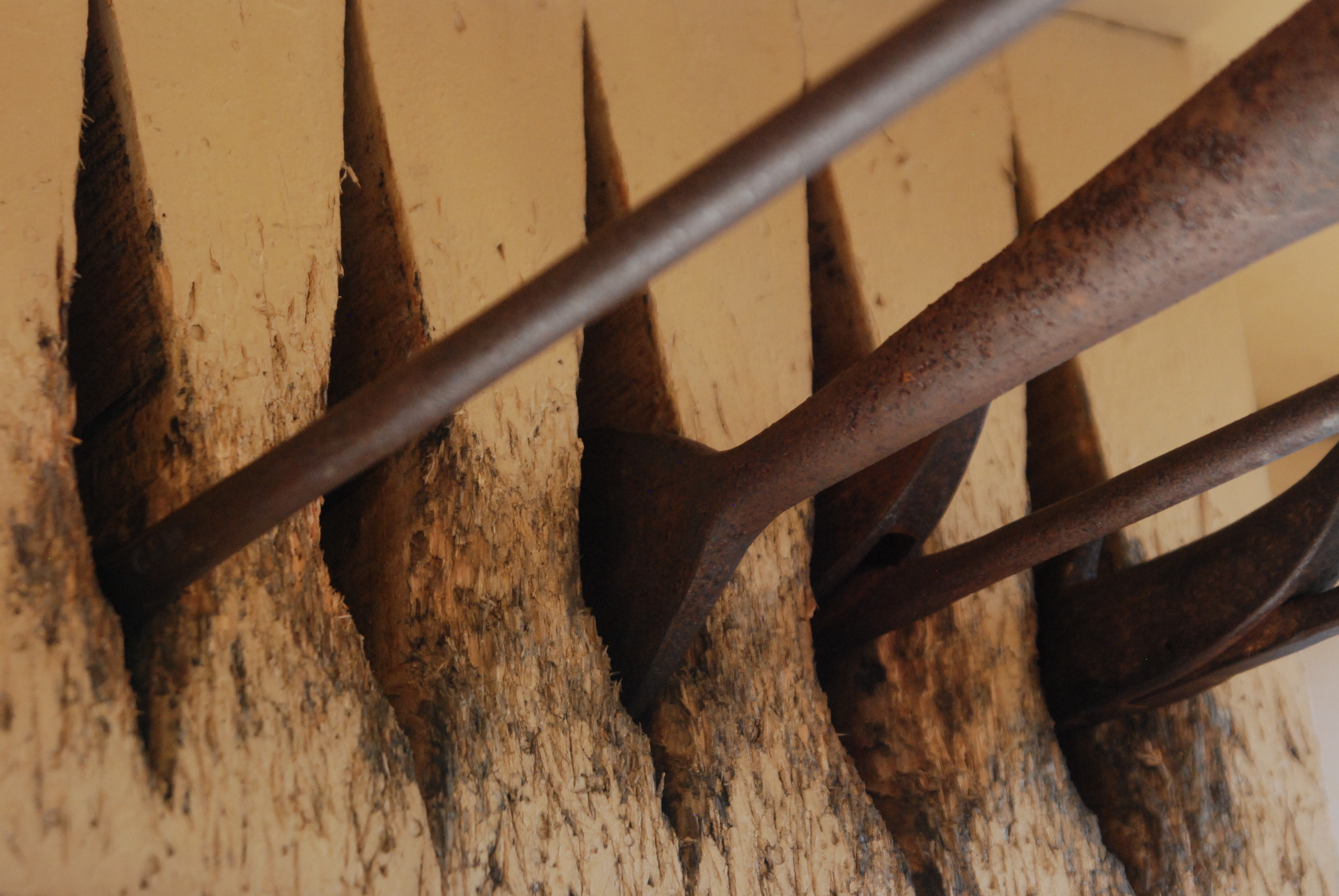
Whale harpoon rack from The Charles W. Morgan, moored in Mystic. Conn., the last extant whaling ship from the mid-1800s, Melville’s era.
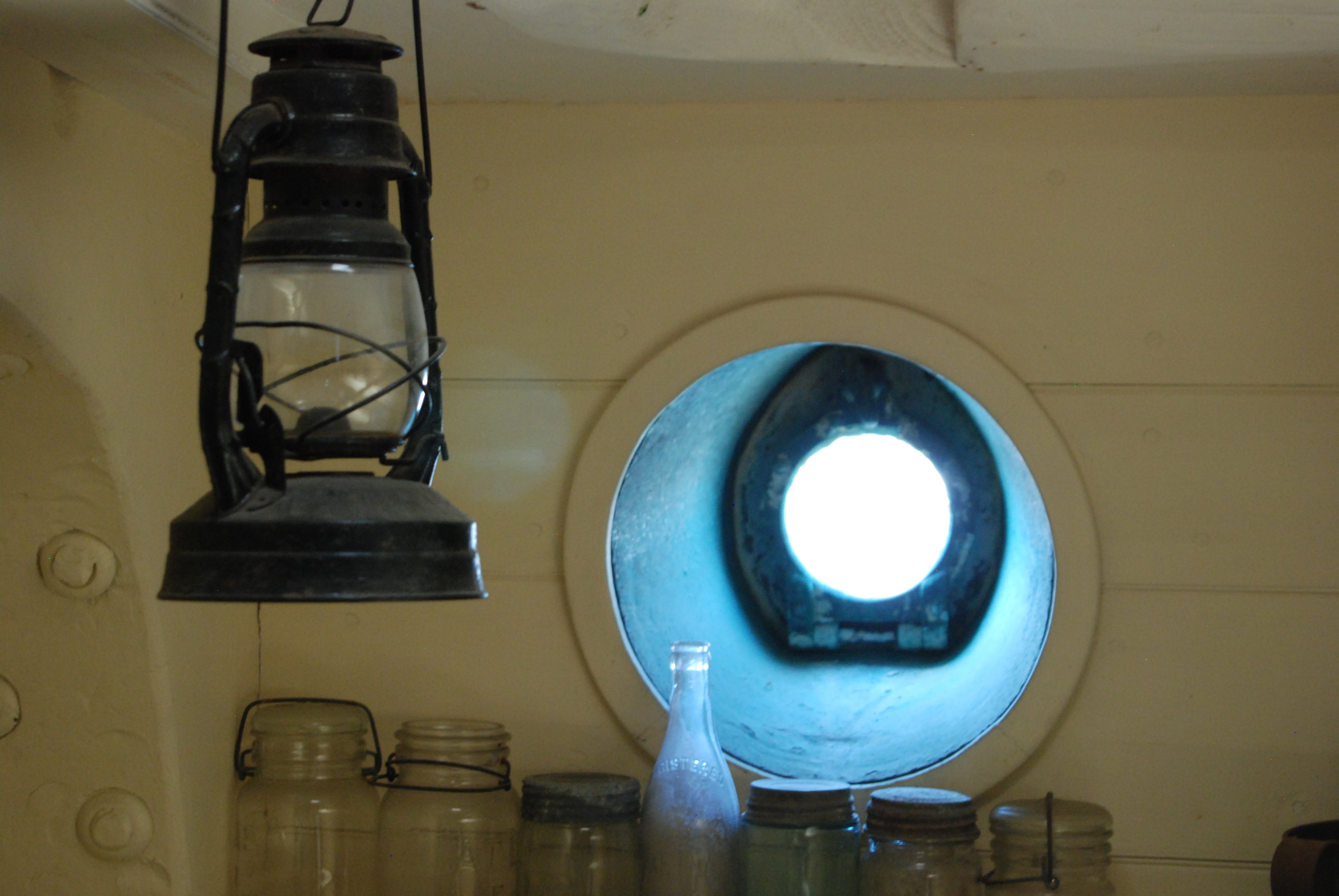
Porthole from below deck on the whaler The Charles W. Morgan
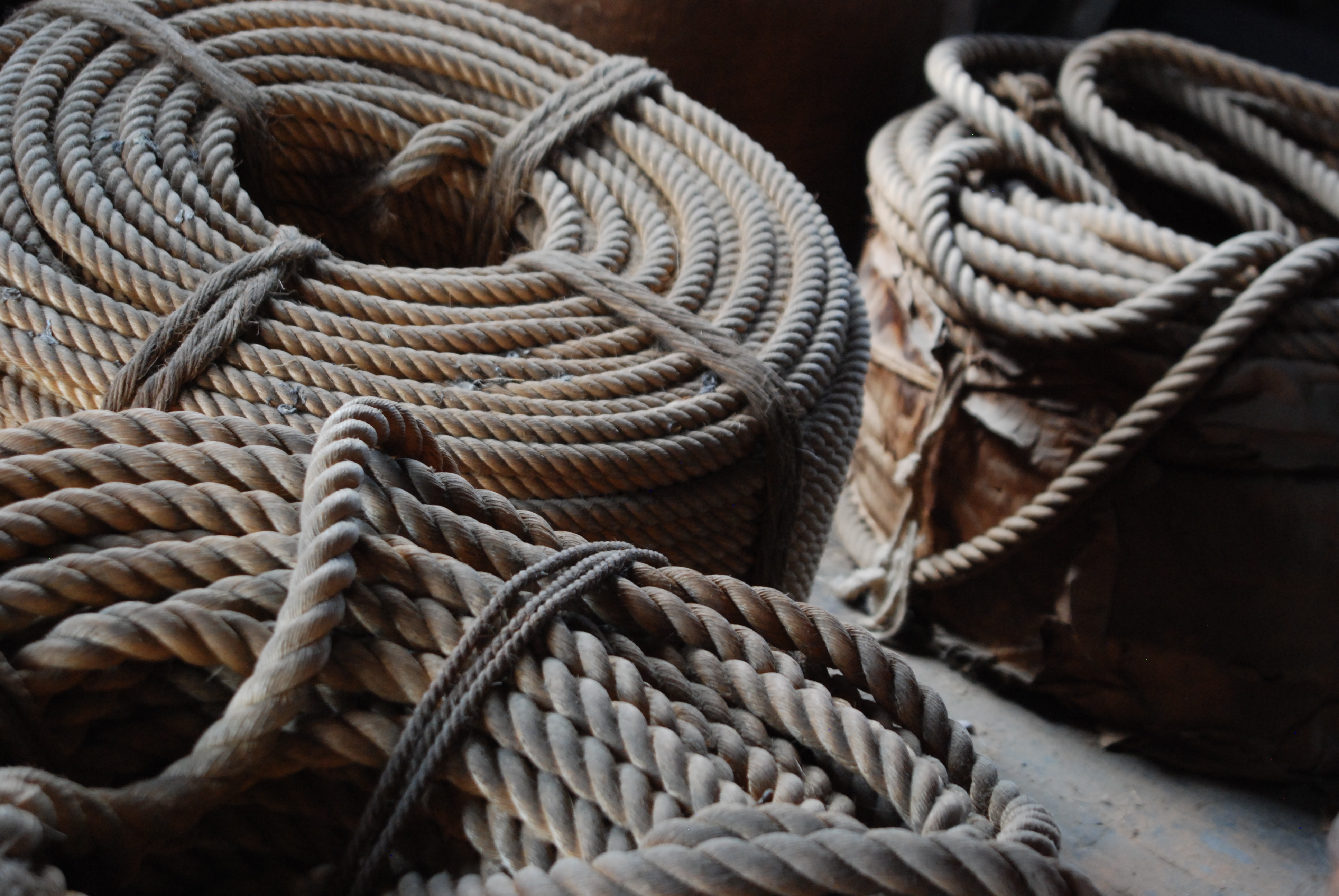
Harpoon rope for whaling boat. The rope and boat would often be pulled by a harpooned whale on a “Nantucket sleigh ride” until the mighty beast weakened. Then the sailors grabbed the rope and hauled their prey in for the final kill.
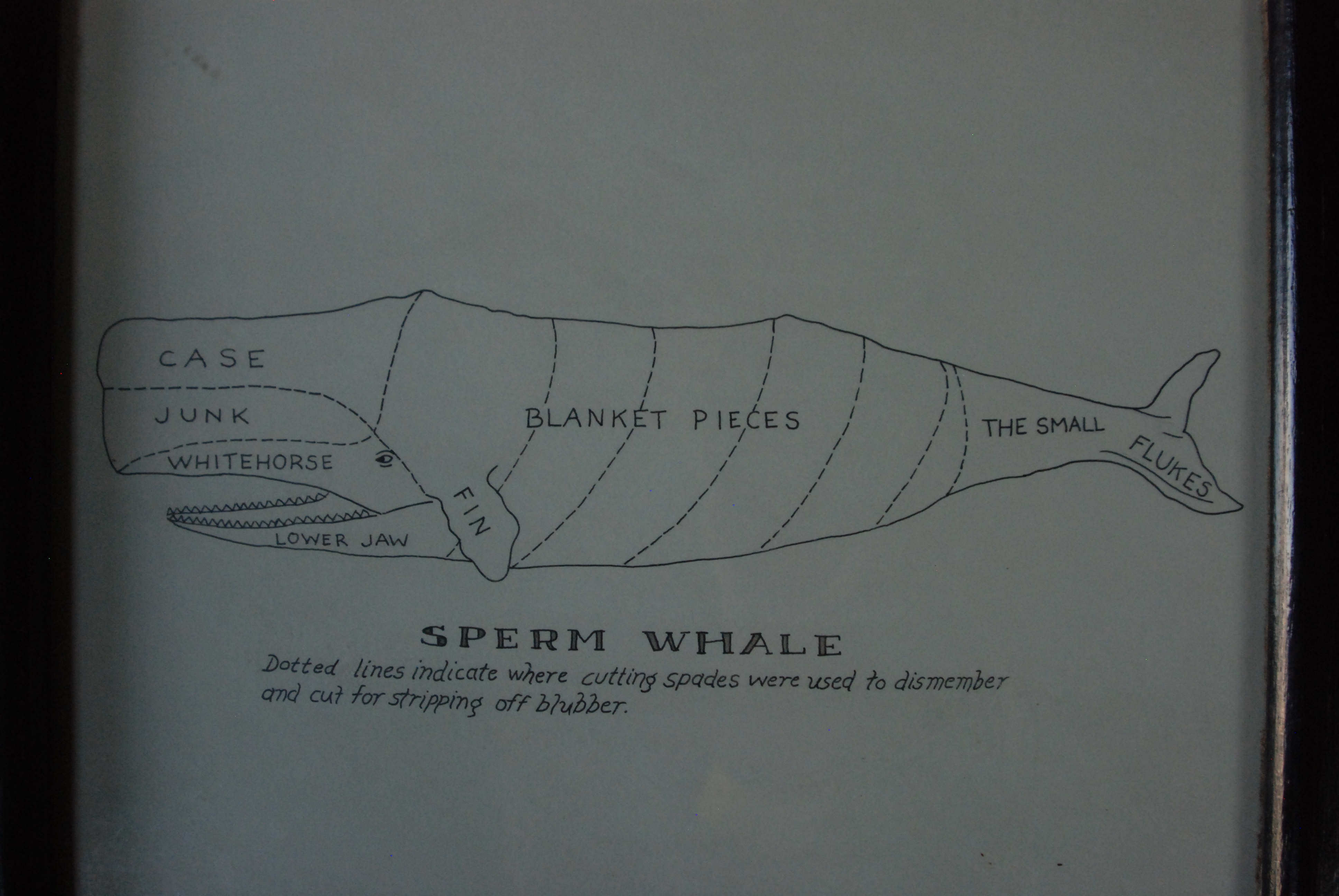
Diagram for the cutting of a captured Sperm Whale by a whaling crew.
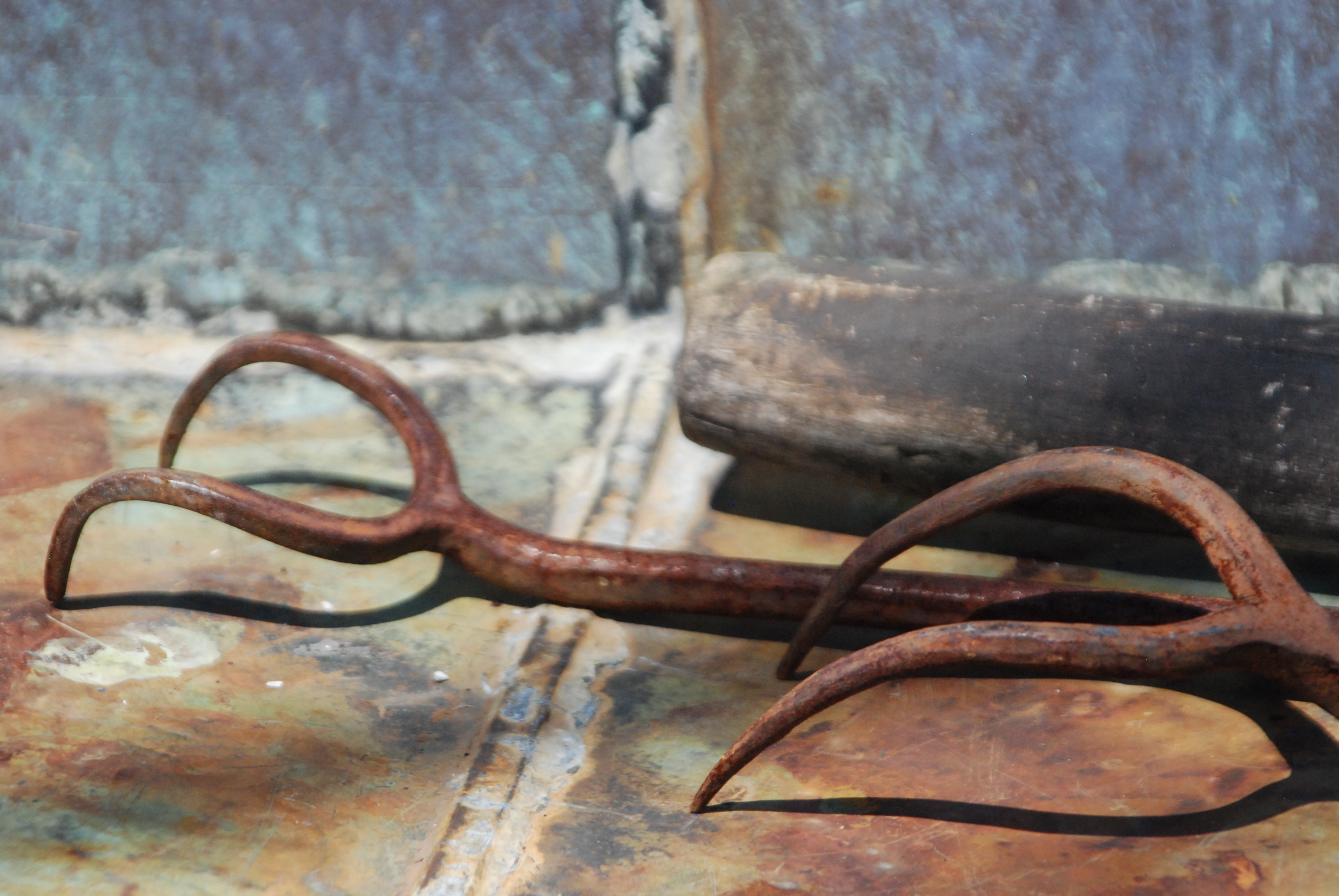
Forked spears, on the Charles W. Morgan, for hoisting whale blubber slabs into the tryworks for melting into oil.
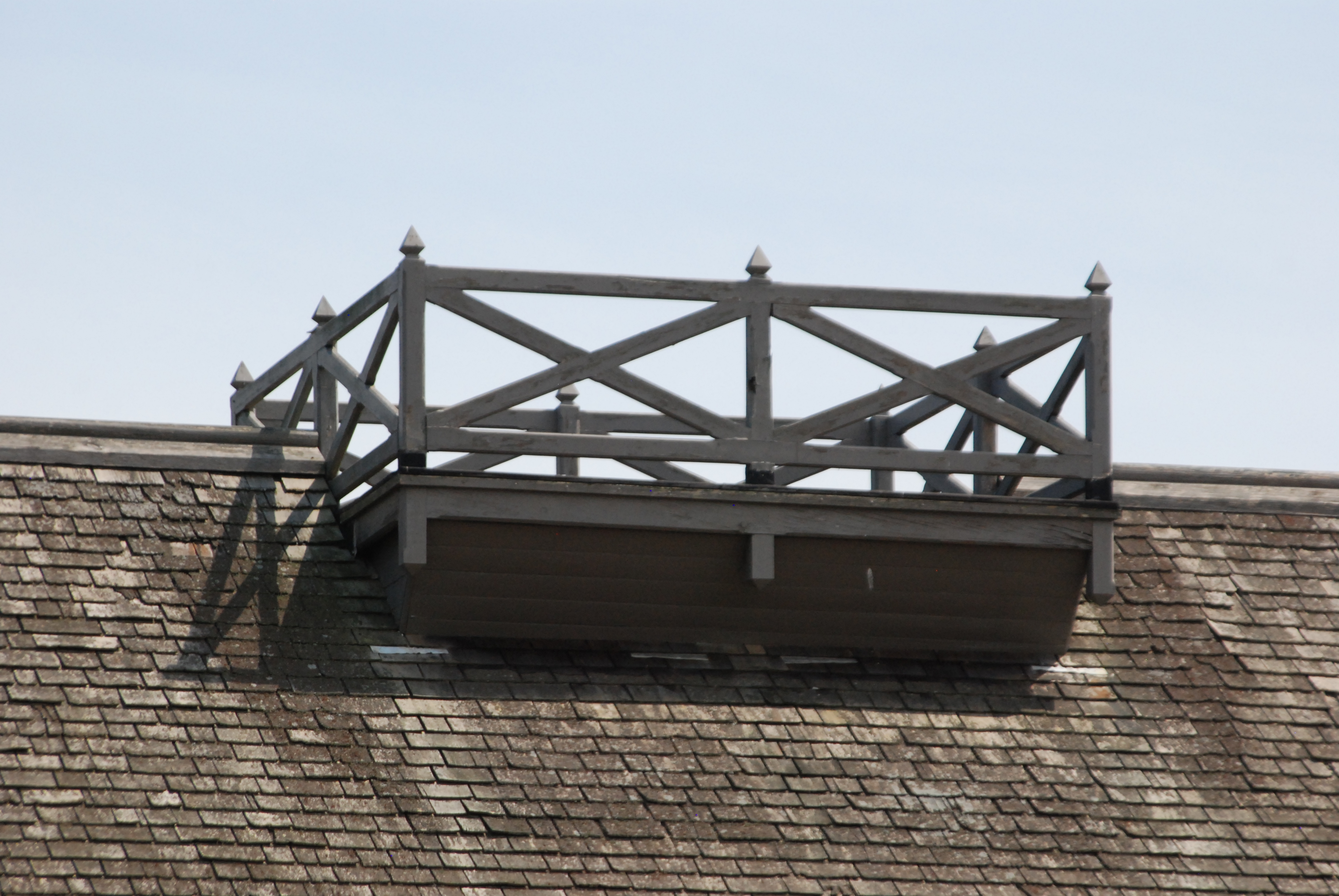 A “widow’s walk” built atop a roof in the harbor at Mystic, Conn., where wives of whalers would watch the sea in hopes of seeing their husbands returning.
A “widow’s walk” built atop a roof in the harbor at Mystic, Conn., where wives of whalers would watch the sea in hopes of seeing their husbands returning.
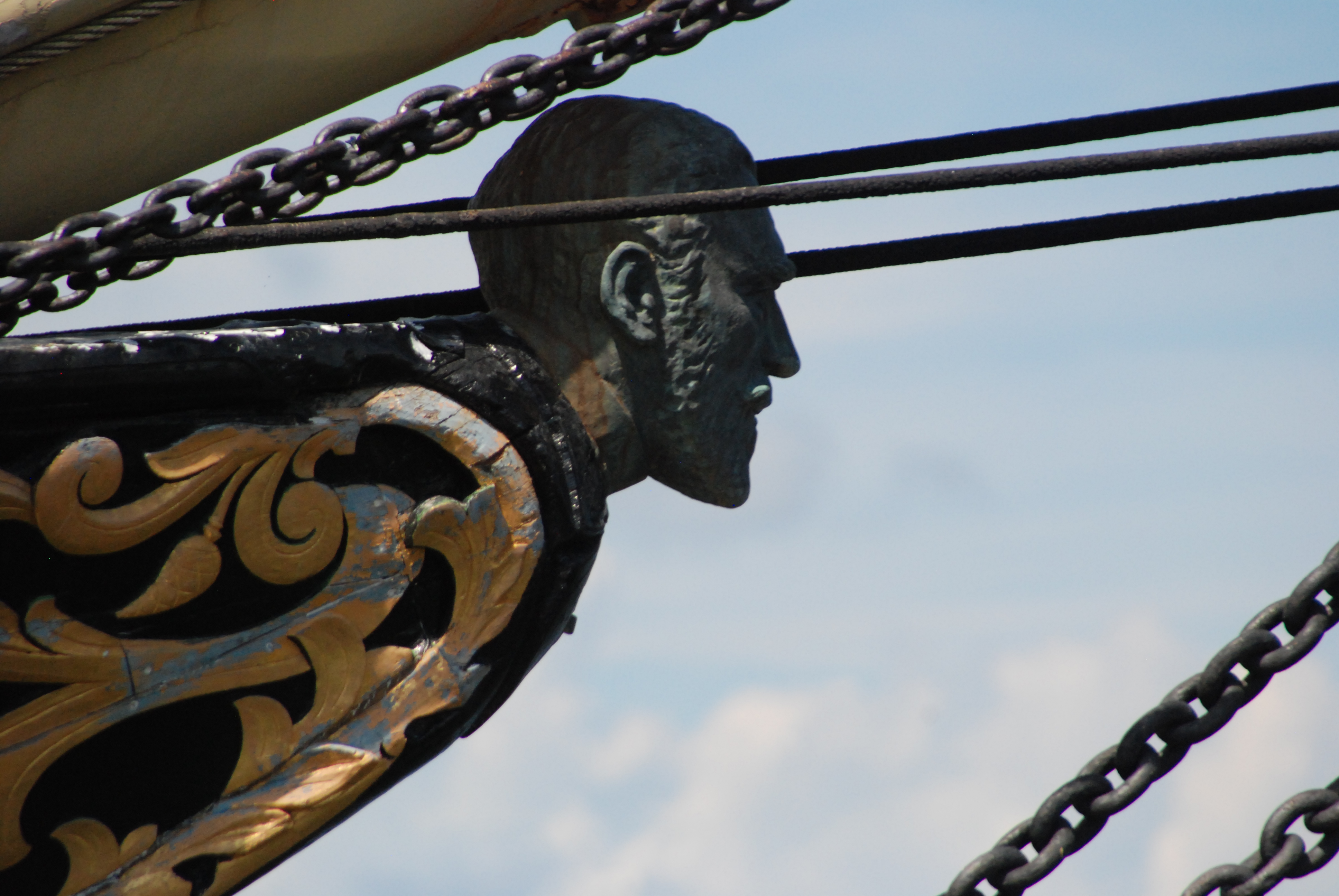
The masthead on the tip of the prow of the 19th-century whaler The Charles W. Morgan.
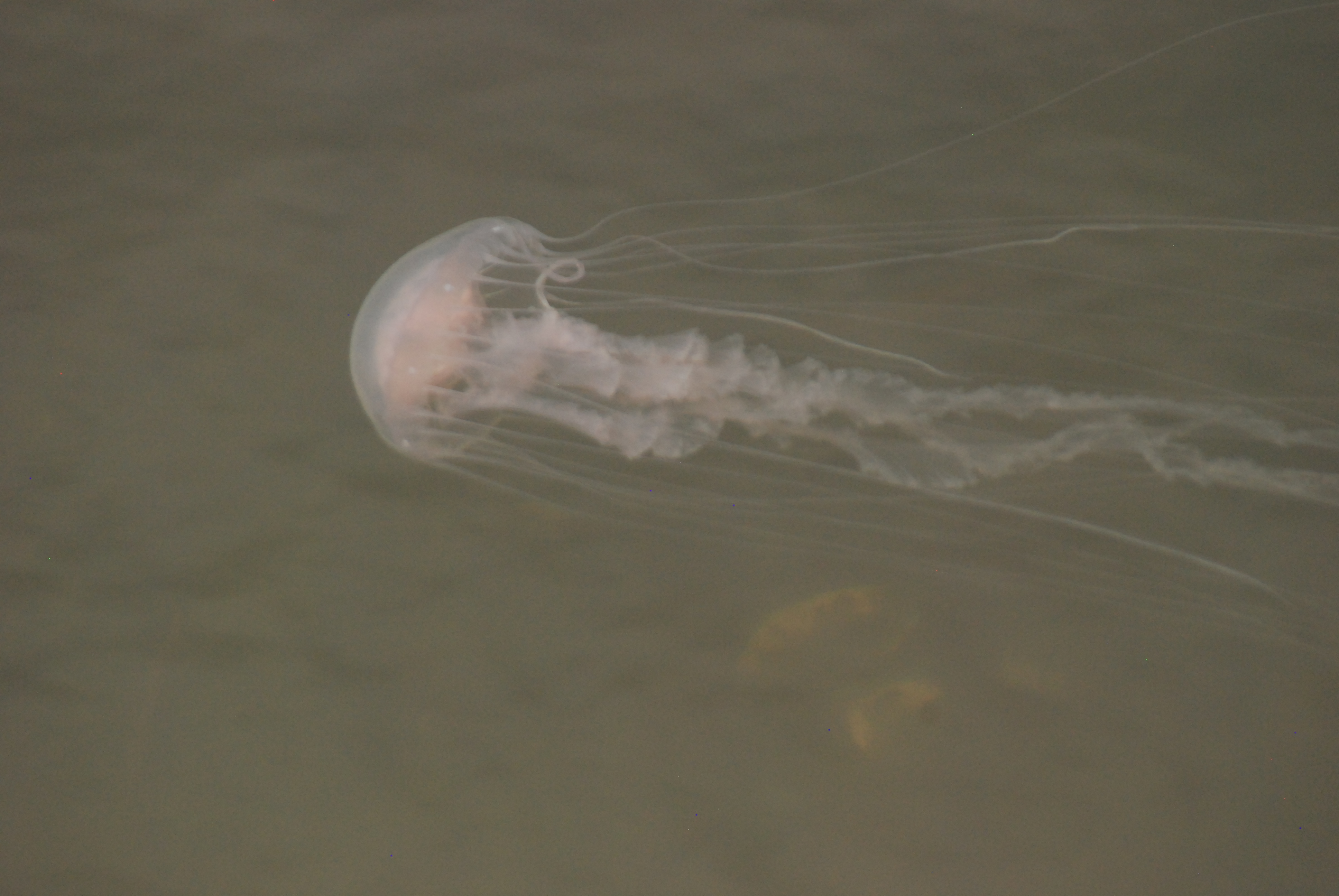
A jellyfish swims past the Charles W. Morgan in the bay of Mystic, Conn.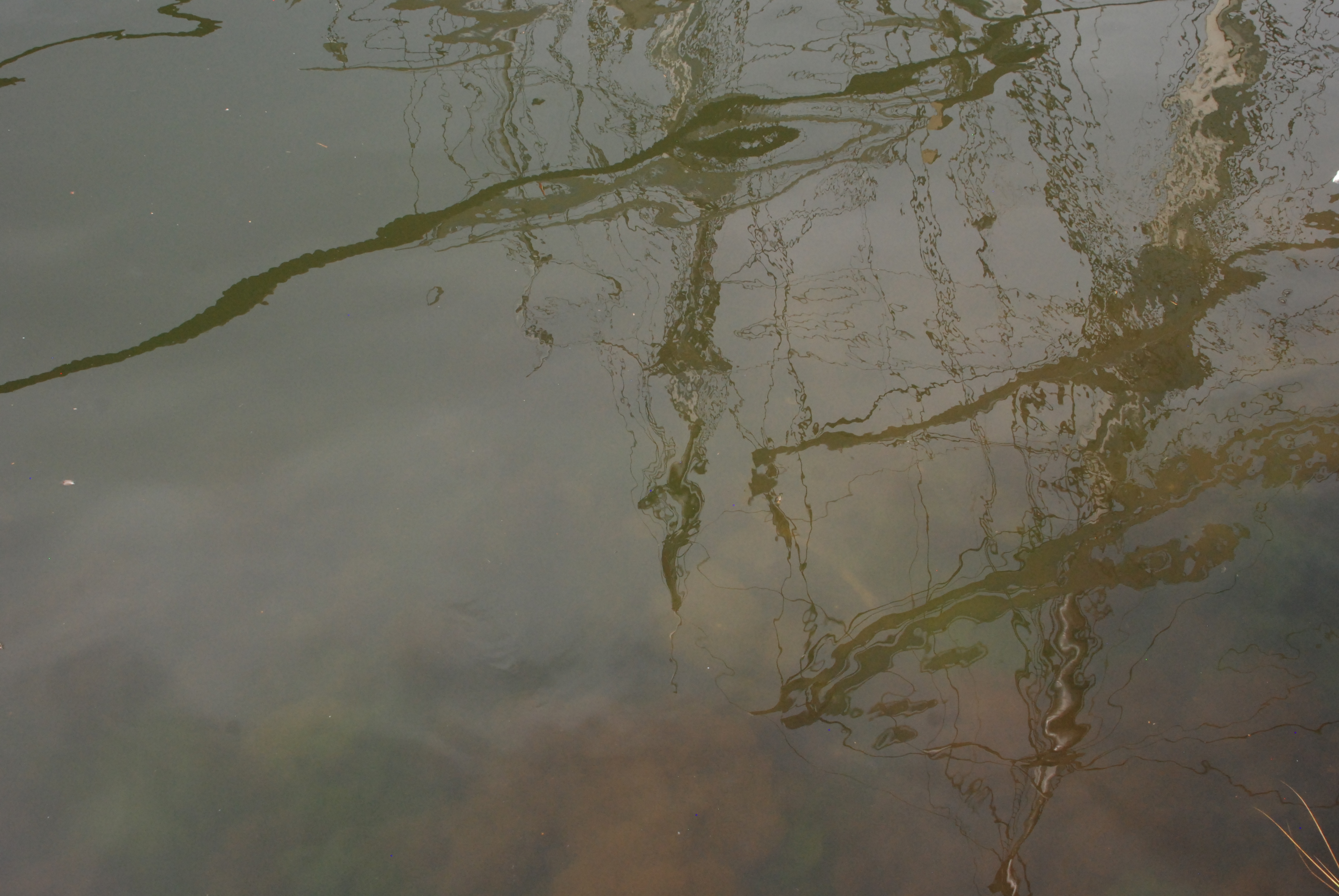 A spectral reflection of the whaling ship in the water below its mooring place.
A spectral reflection of the whaling ship in the water below its mooring place.
_______________

Meanwhile, yours truly tries to continue spreading the word of Melville — here prostelytizing with my “Call Me Ishmael” T-shirt from Arrowhead — with the Italian sausage of the famous Milwaukee Brewers sausage race. I explained to him how much the Moby-Dick man loved Italy’s art. One of Melville’s traveling lectures was on “The Statues of Rome.” Photo by Ann K. Peterson.


I am very intrigued by the photo “Herman Melville (left) and a visitor surveying in the fields at Arrowhead.” I’ve never seen this photo reproduced anywhere else. Does the Pittsfield Anthenaeum confirm the figure on the left is Melville? Thank you for posting it.